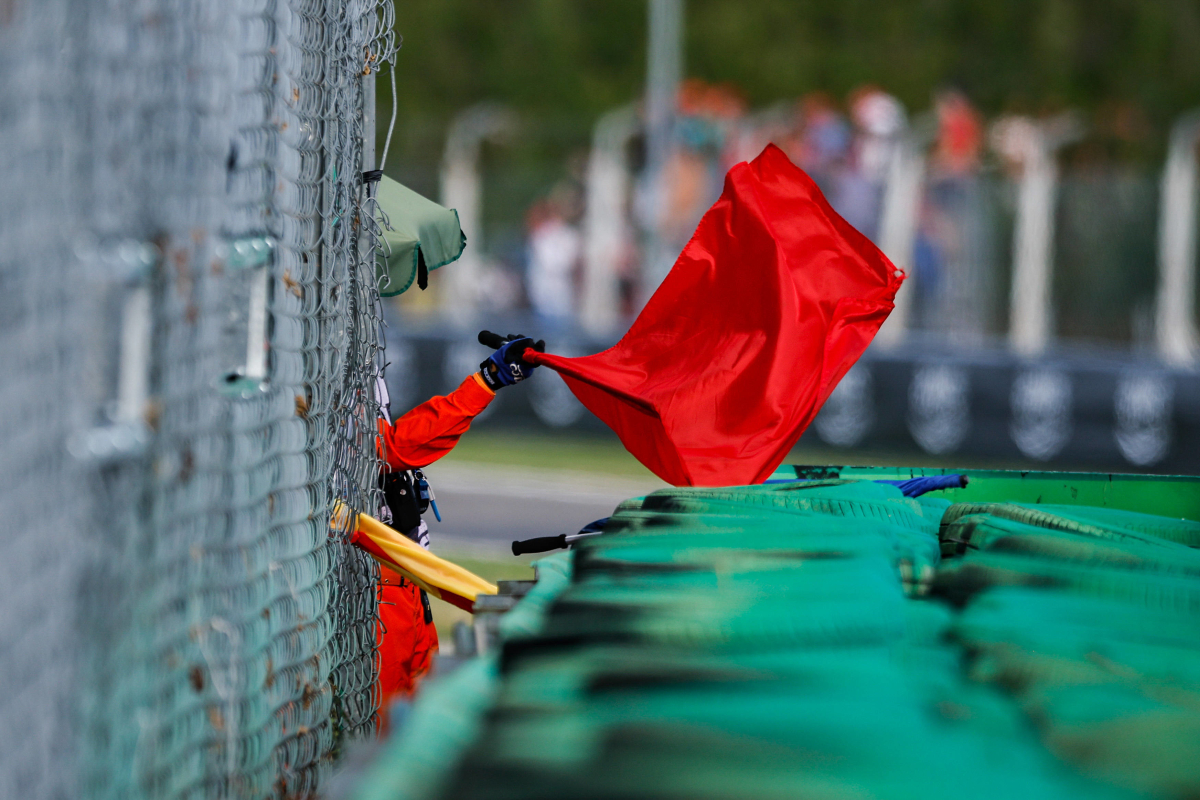Red Bull’s ‘maximum’ engine deficit….read more.
Despite the fact that the 2025 Formula 1 season has only just gotten underway, plenty of people are already looking ahead to the incoming 2026 regulations, and how they’ll shake up the pecking order.
One of those people is Red Bull senior advisor Helmut Marko, and he’s arguing that the Milton Keynes-based team is prepared to come out of the gate with a strong product.
Ford is keeping Red Bull ‘fully on track’ for 2026
While we still have most of a full Formula 1 season remaining in 2025, it’s no secret that one of the biggest talking points this year will be the impending F1 2026 regulations — particularly, who feels that they’ve mastered them.
In 2026, we’ll see a massive overhaul of F1 machinery, featuring a battery-forward hybrid power unit and the implementation of fully sustainable fuels.
Further, the cars will be far lighter and therefore more maneuverable, while active aerodynamics will raise the stakes in overtaking.
Accompanying the changes will be a stunning five power unit manufacturers: Mercedes, Ferrari, Audi, Honda, and Ford. When F1 converted to hybrids back in 2014, Mercedes emerged as the strongest competitor, going on to win eight consecutive World Constructors’ Championships.
Naturally, Mercedes is expecting another show of force for 2026, but Helmut Marko doesn’t want anyone to count out Red Bull and its new partnership with Ford just yet.
Dig deeper into the Japanese Grand Prix:
Hometown disappointment for Tsunoda? Six bold Japanese GP predictions
The truth behind the different RB21s driven by Verstappen and Lawson
Red Bull advisor Helmut Marko spoke with Kleine Zeitung, an Austrian newspaper, about his expectations for the team heading into 2026 — and Marko had some key insight into how he feels the outfit will perform
Red Bull’s ‘maximum’ engine deficit discovered after Mercedes ‘declare themselves favourites’
Helmut Marko believes Red Bull already know where they lag behind but have high hopes for the future.
Despite the fact that the 2025 Formula 1 season has only just gotten underway, plenty of people are already looking ahead to the incoming 2026 regulations, and how they’ll shake up the pecking order.
One of those people is Red Bull senior advisor Helmut Marko, and he’s arguing that the Milton Keynes-based team is prepared to come out of the gate with a strong product.
While we still have most of a full Formula 1 season remaining in 2025, it’s no secret that one of the biggest talking points this year will be the impending F1 2026 regulations — particularly, who feels that they’ve mastered them.
In 2026, we’ll see a massive overhaul of F1 machinery, featuring a bforward hybrid power unit and the implementation of fully sustainable fuels.
Further, the cars will be far lighter and therefore more maneuverable, while active aerodynamics will raise the stakes in overtaking.
Accompanying the changes will be a stunning five power unit manufacturers: Mercedes, Ferrari, Audi, Honda, and Ford. When F1 converted to hybrids back in 2014, Mercedes emerged as the strongest competitor, going on to win eight consecutive World Constructors’ Championships.
Naturally, Mercedes is expecting another show of force for 2026, but Helmut Marko doesn’t want anyone to count out Red Bull and its new partnership with Ford just yet.
Dig deeper into the Japanese Grand Prix:
Hometown disappointment for Tsunoda? Six bold Japanese GP predictions
The truth behind the different RB21s driven by Verstappen and Lawson
Red Bull advisor Helmut Marko spoke with Kleine Zeitung, an Austrian newspaper, about his expectations for the team heading into 2026 — and Marko had some key insight into how he feels the outfit will perform.
He continued, “Mercedes has already declared itself the favorite; everyone is in the game.”
But as far as the power unit is concerned, Marko says, “There won’t be much difference with the combustion engine. We’re fully on track, thanks in part to the help of Ford, and believe we’ll have a maximum of five kW less – absolutely fine at this point.”
A five kW deficit is quite minor considering the overall power unit package is expected to make around 750 kW. And the actual power output may not be the critical factor in performance.
“The big factor is the battery,” Marko explained.
“How is it cooled? How quickly is it charged? How quickly do you get the energy into the car?



